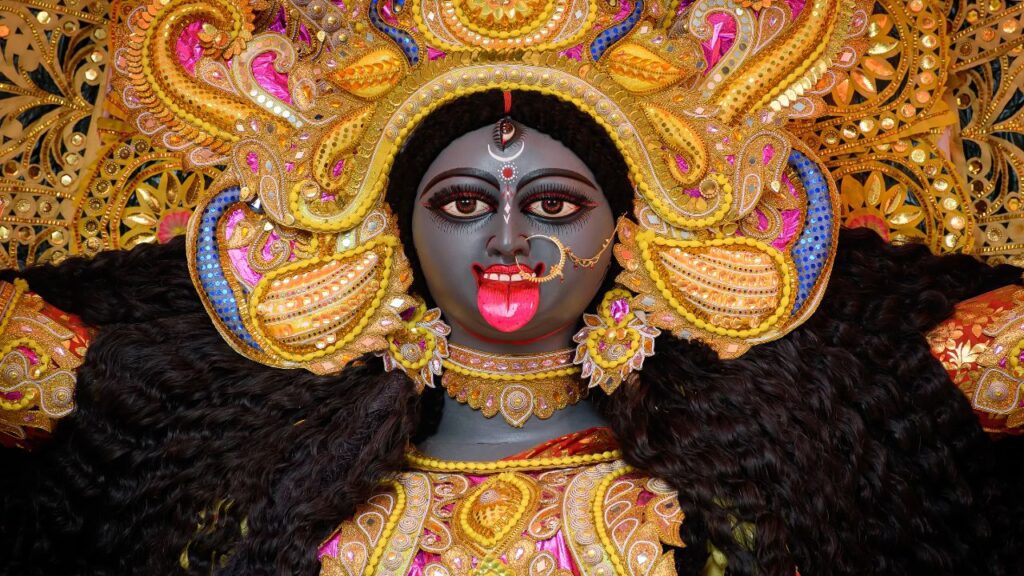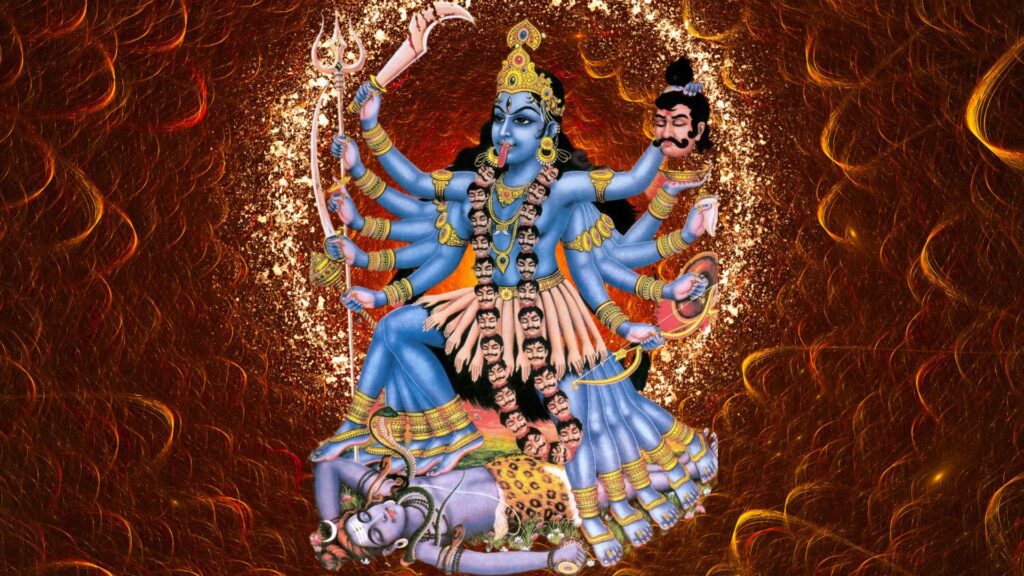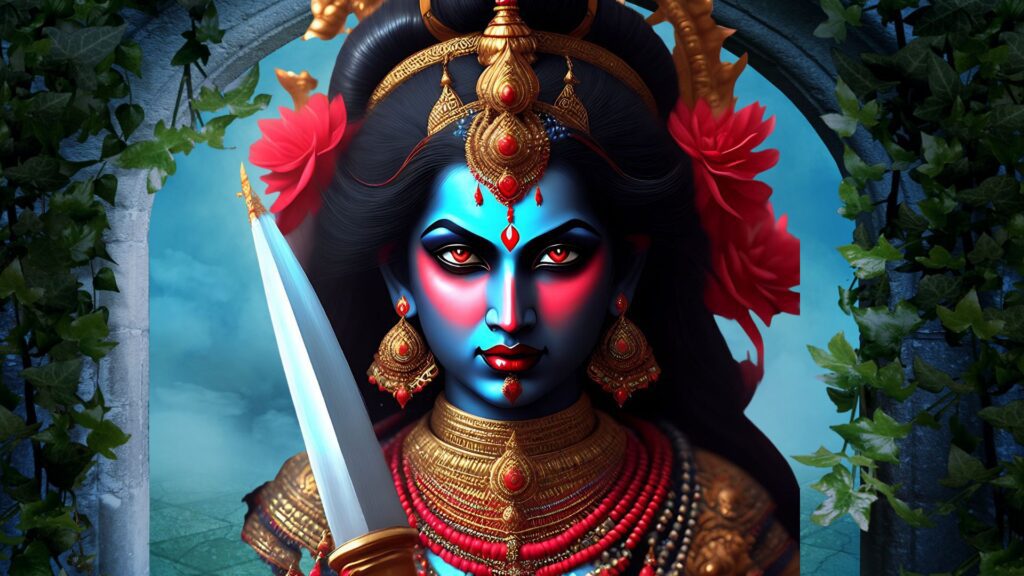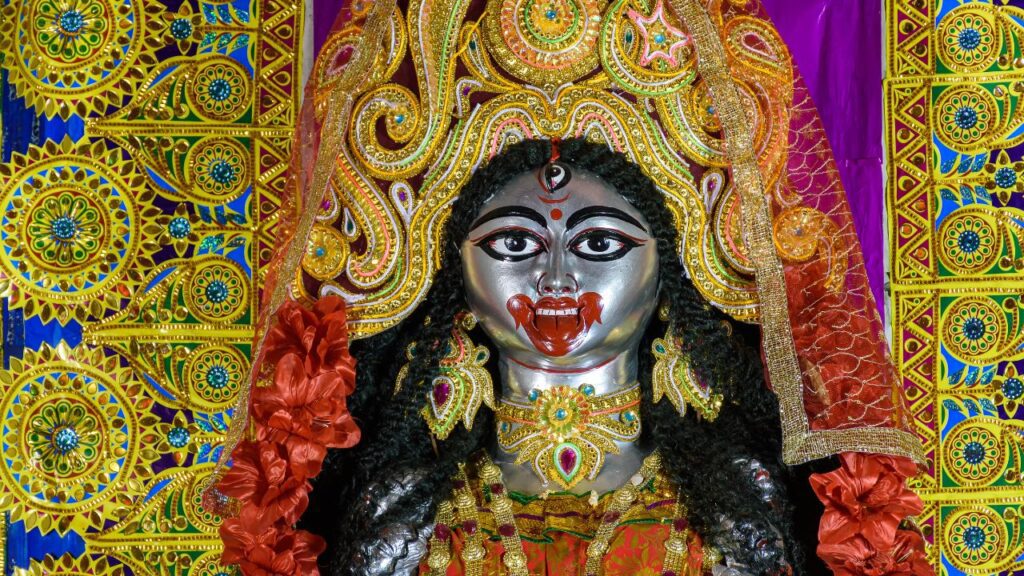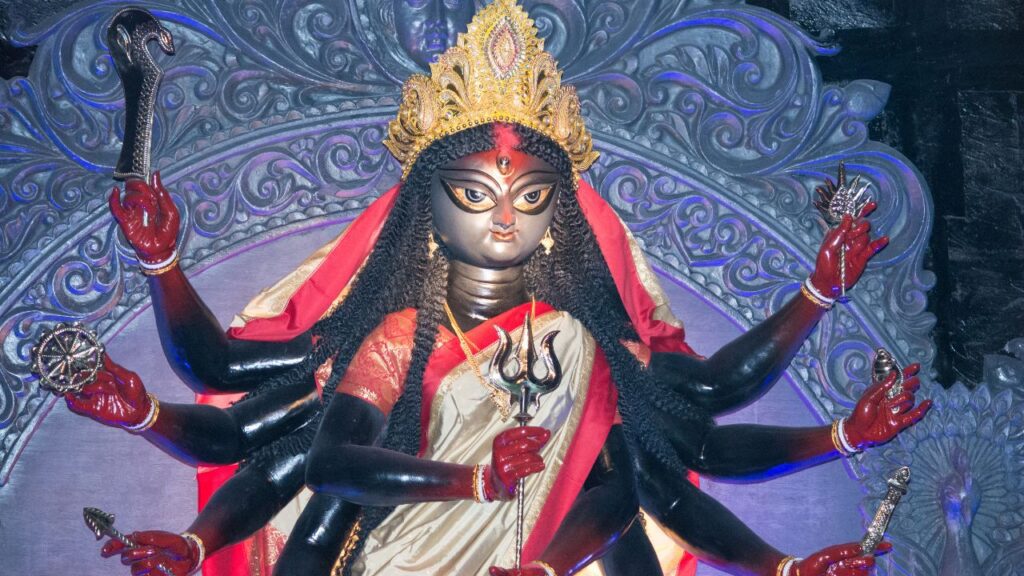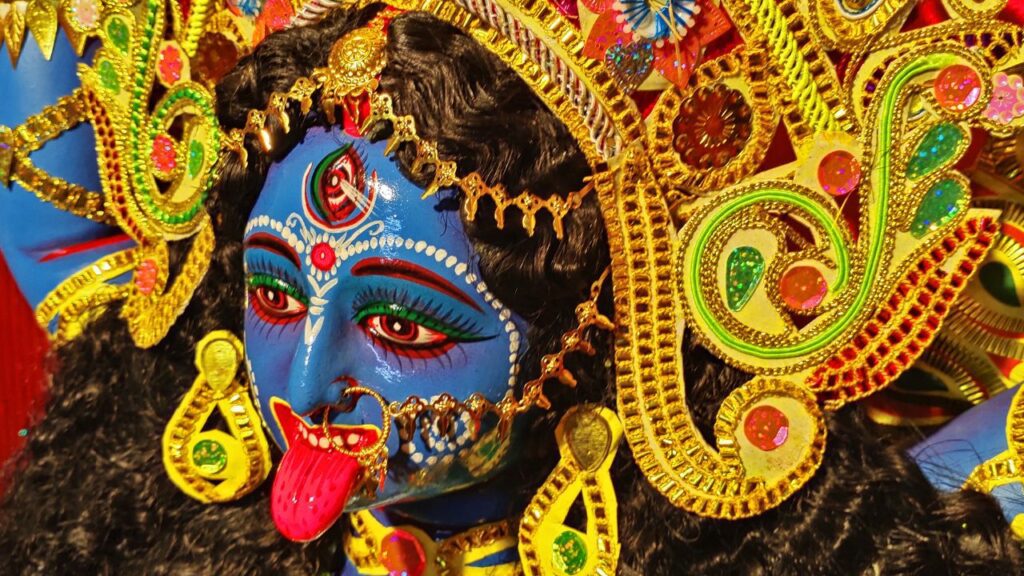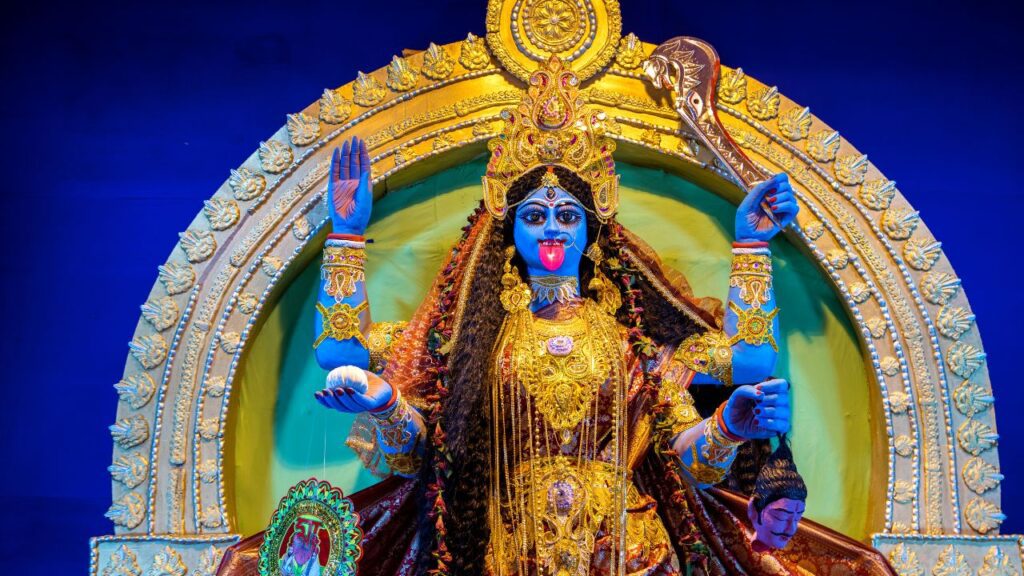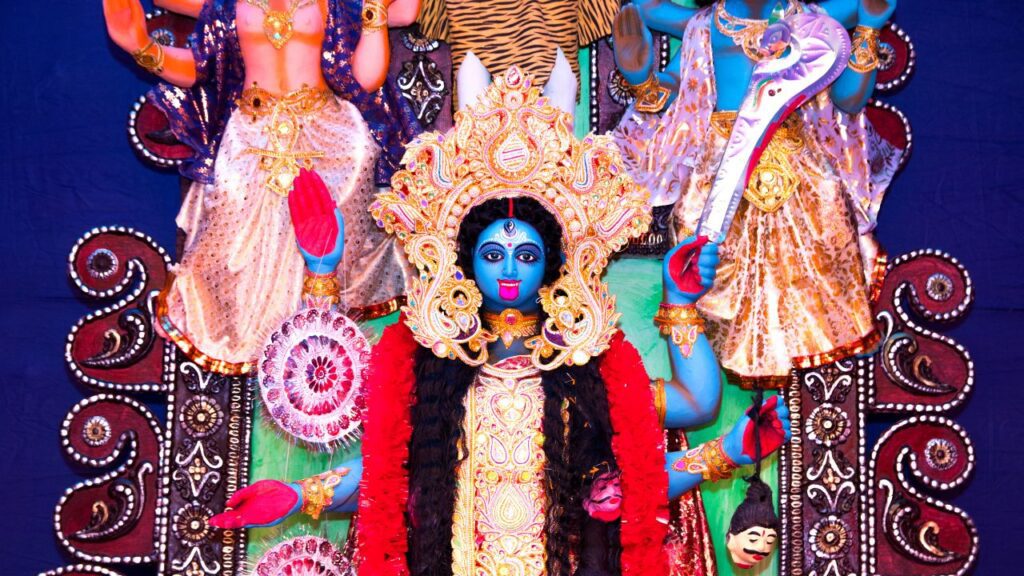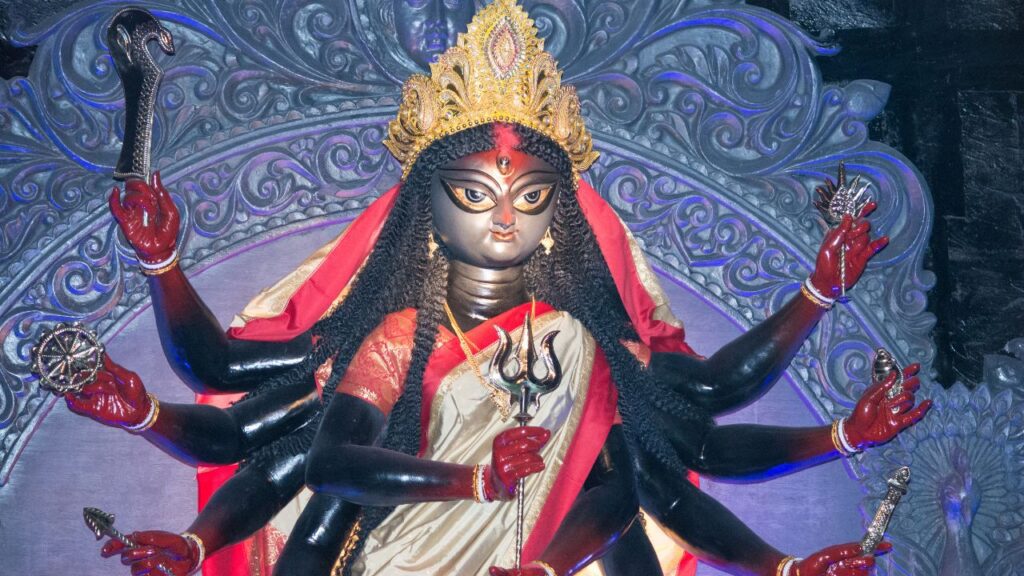Kali Forms :Different Forms of Kali and Meanings
Introduction
Respected Hindu pantheon goddess Kali is sometimes misinterpreted because of her aggressive and strong look. Her numerous expressions, however, transcends the obvious view and each one reflects a different quality of the divine feminine power. From the earliest Adya Kali to the seductive Shodoshi, the 12 forms of the Mother Goddess provide a great window into the complexity of life, death, and the continuous cycle of creation and destruction.
Adya Kal: The Primordial Authority
One of the Dasha Mahavidyas, Adya Kali, is revered with great ardent dedication especially in West Bengal. This form captures the fundamental core of the world itself—the ultimate and basic power of the almighty. Often related with other respected goddesses such Durga, Parvati, and Kali, Adya Kali emphasizes the interdependence of these divine feminine powers.

Matangi Kali: Saraswati’s Brilliant Embodiment
The strong form of Saraswati, the Goddess of Knowledge, is Matangi Kali. Living on the margins of established Hindu faith, Matangi Kali, often known as Chandalini, is hardly worshipped inside the house. Her importance, then, resides in the field of tantric techniques, where she is praised for her capacity to grant knowledge and enlightenment.

Chhinnamasta Kali: The Surprising Representation of Death and Life
Among the twelve forms, Chhinnamasta Kali is perhaps the most shocking since her own severed head consumes the pouring blood from her neck. This startling picture captures the cyclical aspect of life and death, therefore signifying both creation and destruction in a very profound and amazing sense.

Shamsana Kali: the Crematorium Goddess
The form of the Mother Goddess overseeing Crematory operations is Shamsana Kali. Unlike previous forms, this depiction of Kali is shown with just two hands and no projecting tongue, which makes her a more human and sympathetic picture of the divine. Shamsana Kali, worshipped just on the crematorium’s holy grounds, epitomize the great insight of the change from life to death.

Bagala Kali: The Strong Beauty
Though Bagala Kali is a fierce sort of the goddess, her beauty is unmatched. Often depicted as dragging out the tongues of devils, this Kali form reflects the great power of the divine feminine, able of both creation and destruction in equal measure.
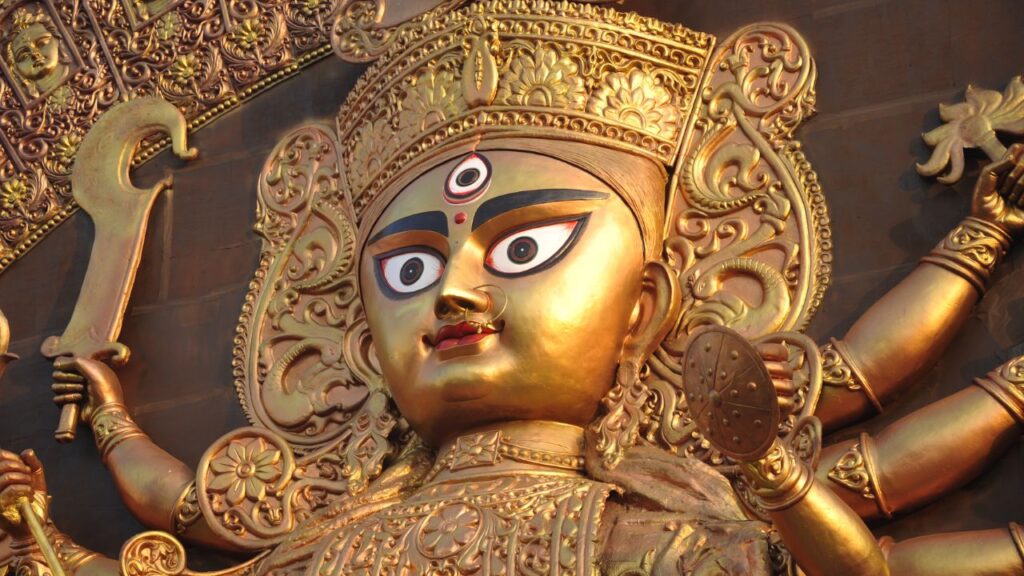
Dakshina Kali: Mother of Mercy
The most often used variant of Kali in Bengal is Dakshina Kali. Thought of as the mother of virtue, this goddess incarnation is supposed to guard her followers against mishaps and bad fate. Even Yama, the god of death, reportedly worries her name, therefore denoting her control over life and death.
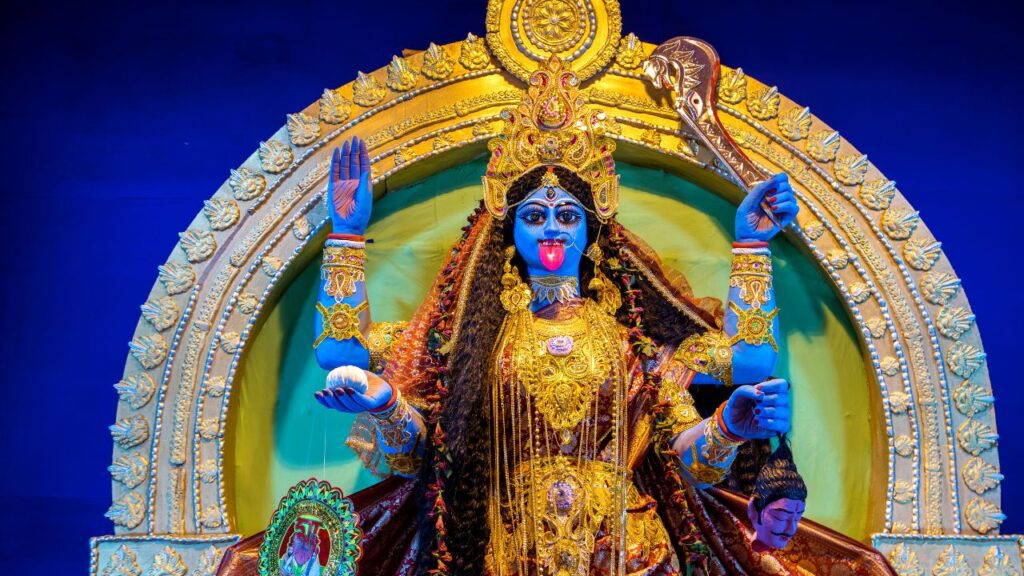
Bhairavi Kali: the protective mother and death’s harbinger
Though she is also seen as a protective mother, Bhairavi Kali is also said to as the harbinger of death. Tripura’s major temple for Bhairavi Kali worship gives this manifestation of the goddess a unique regional relevance.
Tara Kali: The ferocious and shielding Incarnation
Among the 12 forms, Tara Kali stands out for having tiger skin covering and unusual bright blue complexion. This portrayal of the goddess captures the ferocious but protecting quality of the divine feminine, a strong and amazing presence.
Shodoshi Kali: The Enchanting Goddess of Change
Shodoshi Kali is shown as a seductress, a small child coming out of young naivety. This kind of Kali stands for the transforming power of the goddess, able to guide her followers on a road of enlightenment and spiritual development.
Kamala Kali: Lakshmi’s incarnational form
An incarnation of Lakshmi, the goddess of riches and good fortune, Kamala Kali is Often accompanied by two elephants, this form of Kali bestows onto her followers plenty and material success, therefore reflecting the grandeur and majesty of the divine feminine.
Guhya Kali: The Subtle Female Energy
Closely related with tantric techniques, Guhya Kali stands for the latent female force. Also known as Kaleshwari, this kind of Kali is said to be the wife of Lord of Time Kaleshwar.
Dhumavati Kali: The One-of- a-kind Widow Goddess
Dhumavati Kali is a singular manifestation since she is the only Hindu goddess left widowed. Often known as the “Smoke Goddess,” Dhumavati Kali stands for the darker sides of life and the difficulties and hardships that accompany existence.

Conclusion:
The twelve manifestations of Goddess Kali provide a deep and multifarious perspective of the divine feminine force. From the primordial and ancient to the seductive and transforming, each manifestation stands for a distinct facet of the cosmic spirit. Examining the meanings and relevance of these forms helps followers to start a road of spiritual illumination, therefore embracing the complexity of life, death, and the continuous cycle of creation and destruction.
Main Keyword: Various Goddess Kaali Forms and Their InterpretionsAdya Kali, Matangi Kali, Chhinnamasta Kali, Bagala Kali, Dakshina Kali, Bhairavi Kali, Tara Kali, Shodoshi Kali, Kamala Kali, Guhya Kali, Dhumavati Kali
#kali #female #goddess #forms #
